Durham University solar car enters Australian outback challenge
- Published
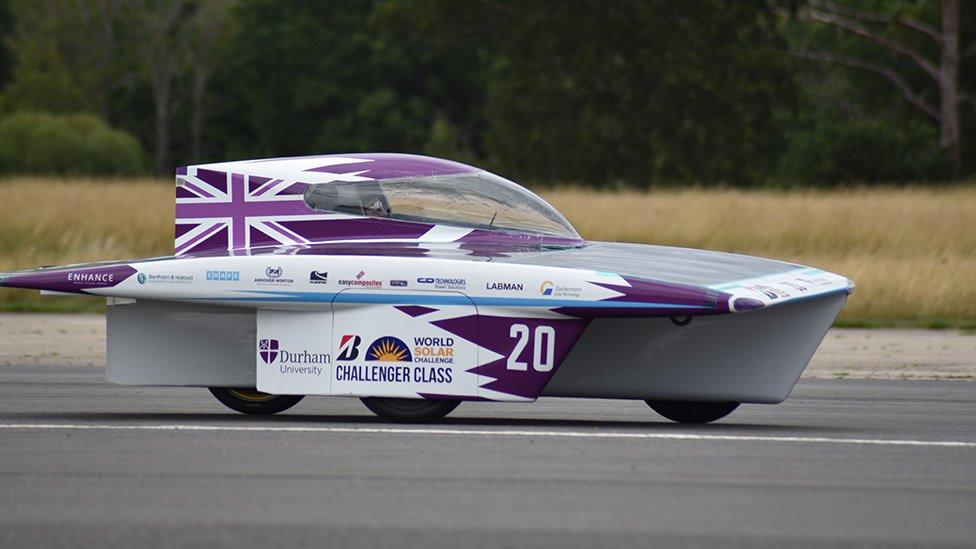
The car - named DUSC23 - has been tested on the Top Gear race track
A solar-powered electric car built by students is to take part in an international 3,000km (1,864-mile) race in the Australian outback.
The Durham University team will compete in a three-wheeled car designed by more than 50 students over 100,000 hours at a department of engineering society.
It can generate enough energy to drive at more than 75 km/h (47mph).
Faculty advisor Prof David Sims-Williams said the project was a "great opportunity" to make ideas a reality.
"Success requires designs which are bold and innovative but which also work in the real world," he said.
The Bridgestone World Solar Challenge starts in Darwin on 22 October and finishes in Adelaide five days later, with the cars expected to cover the course in 50 hours.
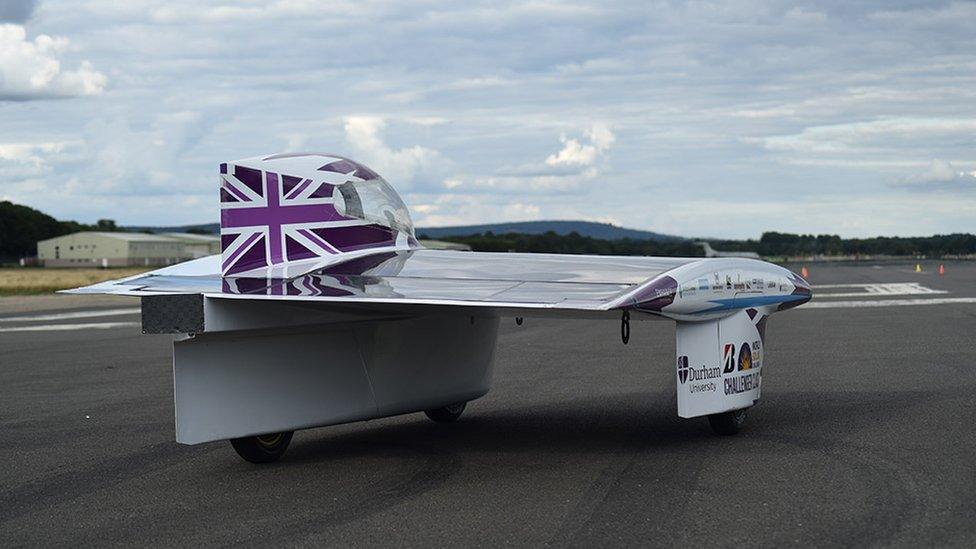
The car will compete in the Challenger Class, which is for single-seat electric vehicles
Durham's car will race in the Challenger Class, in which vehicles start with 10% of the energy they need stored in battery packs with the rest generated through the sun.
The size of solar panel is limited, providing about half the power of a hairdryer, so entrants have had to develop vehicles that use less energy.
The car, known as DUSC23, is made with lightweight carbon fibre and Kevlar and weighs approximately 170kg (374 lb).
An in-wheel motor avoids the need for a gearbox and other mechanical components, improving efficiency, the university said.
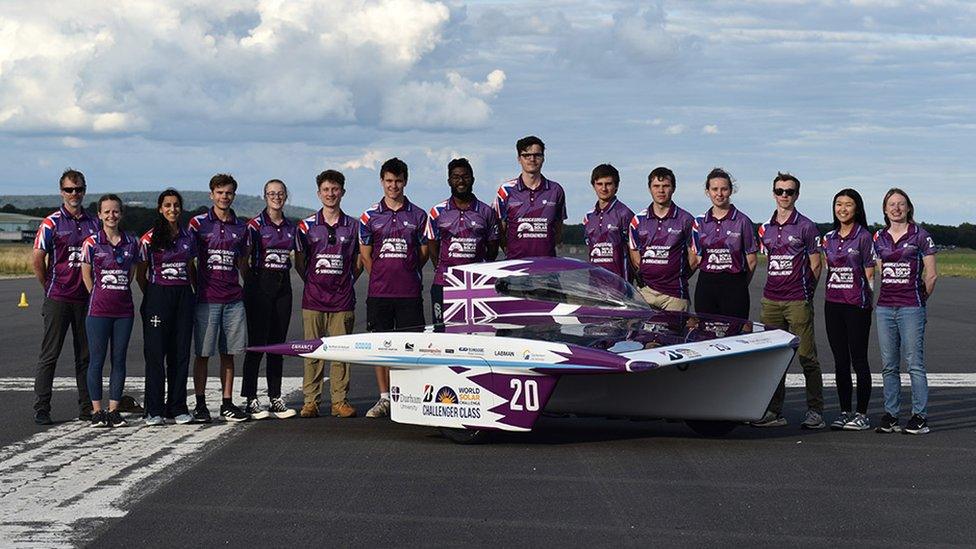
The team spent 100,000 hours of their spare time working on the car
Mitch Flegg, the chief executive of sponsors Serica Energy, said the company was impressed with Durham's "brilliant engineering and scientific collaborations" and ingenuity.
They had overcome "tremendous hurdles to design and build this unique vehicle from scratch, and to extremely exacting specifications", he said.
Bridgestone North said it wanted to support "innovation and sustainability in the transportation sector".

Follow BBC North East & Cumbria on X (formerly Twitter), external, Facebook, external and Instagram, external. Send your story ideas to northeastandcumbria@bbc.co.uk, external.
- Published2 July 2022
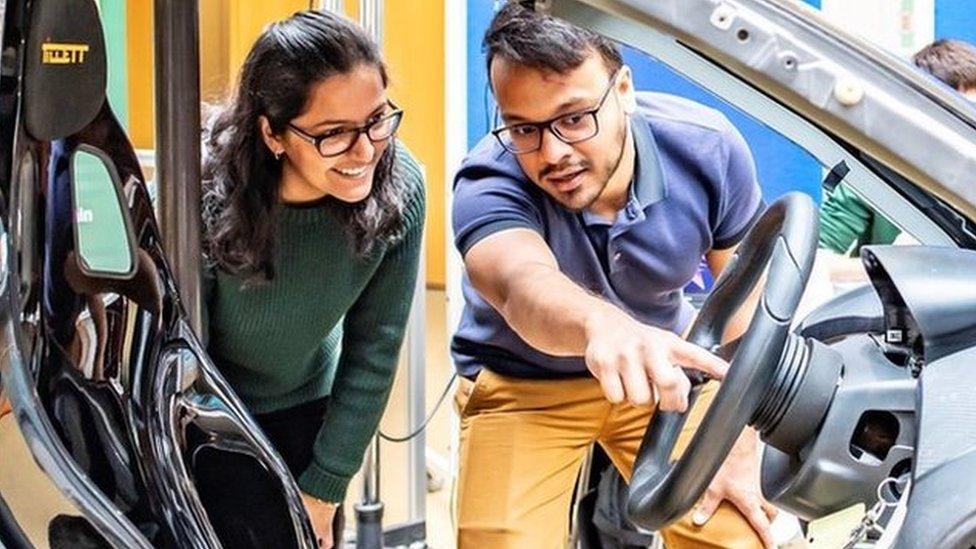
- Published11 June 2019
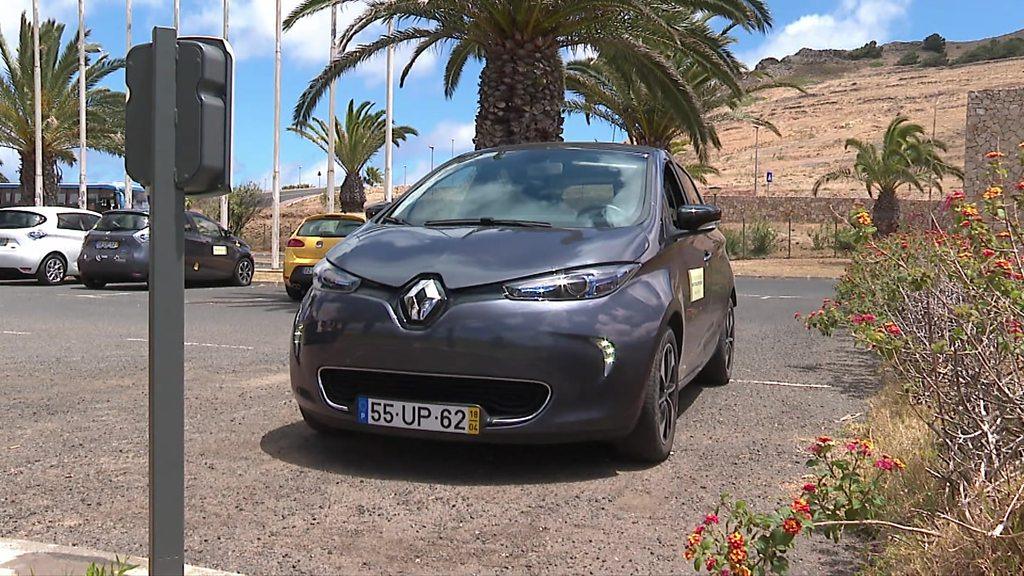
- Published8 October 2017